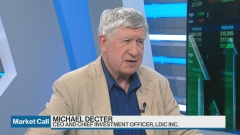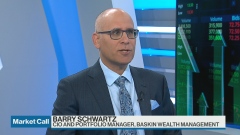Jun 22, 2023
UK Regulator Was Missing in Action at Start of Nickel Crisis, Filings Show
, Bloomberg News
(Bloomberg) -- The UK’s market regulator had only superficial engagement with the London Metal Exchange as it sleepwalked into last year’s nickel crisis, according to information made public as part of a legal battle between the exchange and aggrieved traders.
For much of March 7, as nickel prices surged and for hours after a large Chinese bank missed a margin call, the Financial Conduct Authority was largely passive in its interactions with the LME, according to an account by LME Chief Executive Officer Matthew Chamberlain. The following morning, nickel had already more than tripled in little over 24 hours in an epic short squeeze, when it sent a set of questions inquiring about the reason for the continued price surge.
By that time, the LME was in full-blown crisis mode, as it prepared to issue a statement announcing the suspension of the nickel market. A senior LME executive complained at the time the regulator’s questions were “ridiculous,” according to a redacted transcript from a group Whatsapp chat provided to Bloomberg on Thursday.
Read: What Really Happened the Night the Nickel Market Broke
The interaction is embarrassing for both the FCA and the LME. For the exchange, it highlights the uncomfortable truth that the LME didn’t actually have a grasp on the reason for the price spike. But it is also one of several revelations that shows how little involvement the FCA had in supervising the chaos in the nickel market.
An FCA spokesperson said that the information disclosed in court outlines Chamberlain’s interaction with the FCA and “does not include any additional interaction the FCA may have had with other people at the LME or the timings of those.” The LME declined to comment.
[08/03/2022, 08:13:18] Kirstina Combe: Have spoken to FCA answered their ridiculous questions and explained plan. Will send notice once finalised for their info
[08/03/2022, 09:05:50] Matt Chamberlain: Thanks. Chris - have all members made last night’s margin calls? Gay is chasing...
[08/03/2022, 09:05:59] +44 [redacted]: Yes
[08/03/2022, 09:06:13] +44 [redacted]: We have full payment from all members
The FCA has been probing the LME’s actions since the crisis, in which the exchange caused outrage among hedge funds by deciding to cancel billions of dollars in trades rather than trigger a wave of margin calls it says would have been a “death spiral” for its market. In March, the regulator launched an enforcement investigation into the LME – the first time it has ever taken such action against an exchange.
The court hearings this week have revealed how the LME itself was woefully unprepared for the situation, having failed to grasp the scale of the short position held by top nickel producer Tsingshan Holding Group Co. It was also accused of helping to fuel the price spike by removing volatility controls on the morning of March 8, although the LME said this week the removal of the “price bands” didn’t make a difference to the situation.
Read: Elliott Says LME Fueled Nickel Chaos by Lifting Circuit Breakers
But while the revelations in court this week have laid bare the flaws in the LME’s processes and decisions, they have also cast the UK markets regulator in an unflattering light.
On March 7, when nickel prices surged as much as 90% and several LME members were late paying margin calls, it was LME CEO Chamberlain who contacted the FCA to give them an update. According to the events recounted in the Chamberlain’s witness statement, the regulator’s only contribution later that afternoon was to ask for an update on the outcome of a meeting of the LME’s “special committee,” which he provided later that night.
Executives had discussed suspending nickel trading or adding price controls during the day, but decided against intervening because they believed the market remained “orderly” and that the rally was being driven by concerns about the impact on supply from Russia’s invasion of Ukraine.
But the following morning, prices exploded in a dizzying ascent. Chamberlain woke up around 5:30 a.m., and shortly afterward initiated a discussion in the group chat about suspending the market.
[08/03/2022, 06:07:50] Matt Chamberlain: Nickel is up 100% this morning
[08/03/2022, 06:07:55] Matt Chamberlain: image omitted
[08/03/2022, 06:08:40] Matt Chamberlain: Just spoke to [redacted] - they will default if we margin at these levels. I suspect others too
[08/03/2022, 06:08:47] Matt Chamberlain: Think we do need to suspend now
[08/03/2022, 06:09:15] Matt Chamberlain: Or at least before 0900 margin calls
[08/03/2022, 06:09:18] Adrian Farnham: Agreed.
A little over an hour later, the CEO received an email from the FCA with a set of questions. He passed this to LME chief regulatory and compliance officer Kirstina Combe, who was a key point of contact for the FCA.
The FCA had asked for the LME’s “understanding of what is driving this continued spiralling increase in price,” among other things, according to Chamberlain.
“Have spoken to FCA answered their ridiculous questions and explained plan,” Combe wrote in the chat.
Ironically, the FCA may have been uniquely well placed to anticipate the nickel short squeeze. One of the reasons that the LME didn’t realize the scale of the short position held by Tsingshan is that the vast majority of the position was held off-exchange, in over-the-counter deals that were out of its view.
The FCA requires UK firms to report details of their over-the-counter contracts to an FCA-registered or -recognized repository — meaning it may have had access to more information than the LME.
Still, there are also issues with this data, which doesn’t differentiate between metals such as nickel and copper, simply reporting all base metals as a single category.
(Updates with comments from the FCA in fifth paragraph.)
©2023 Bloomberg L.P.





